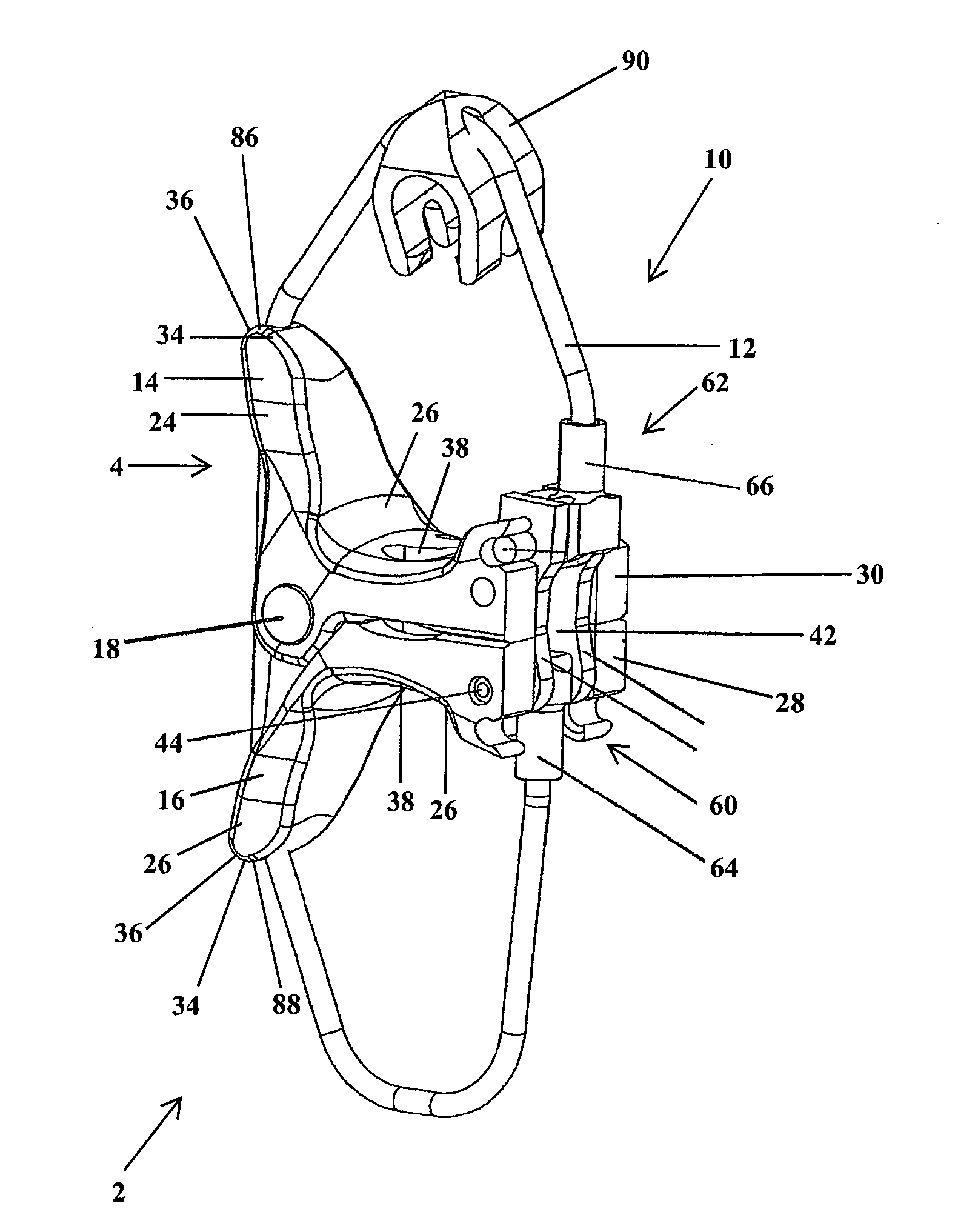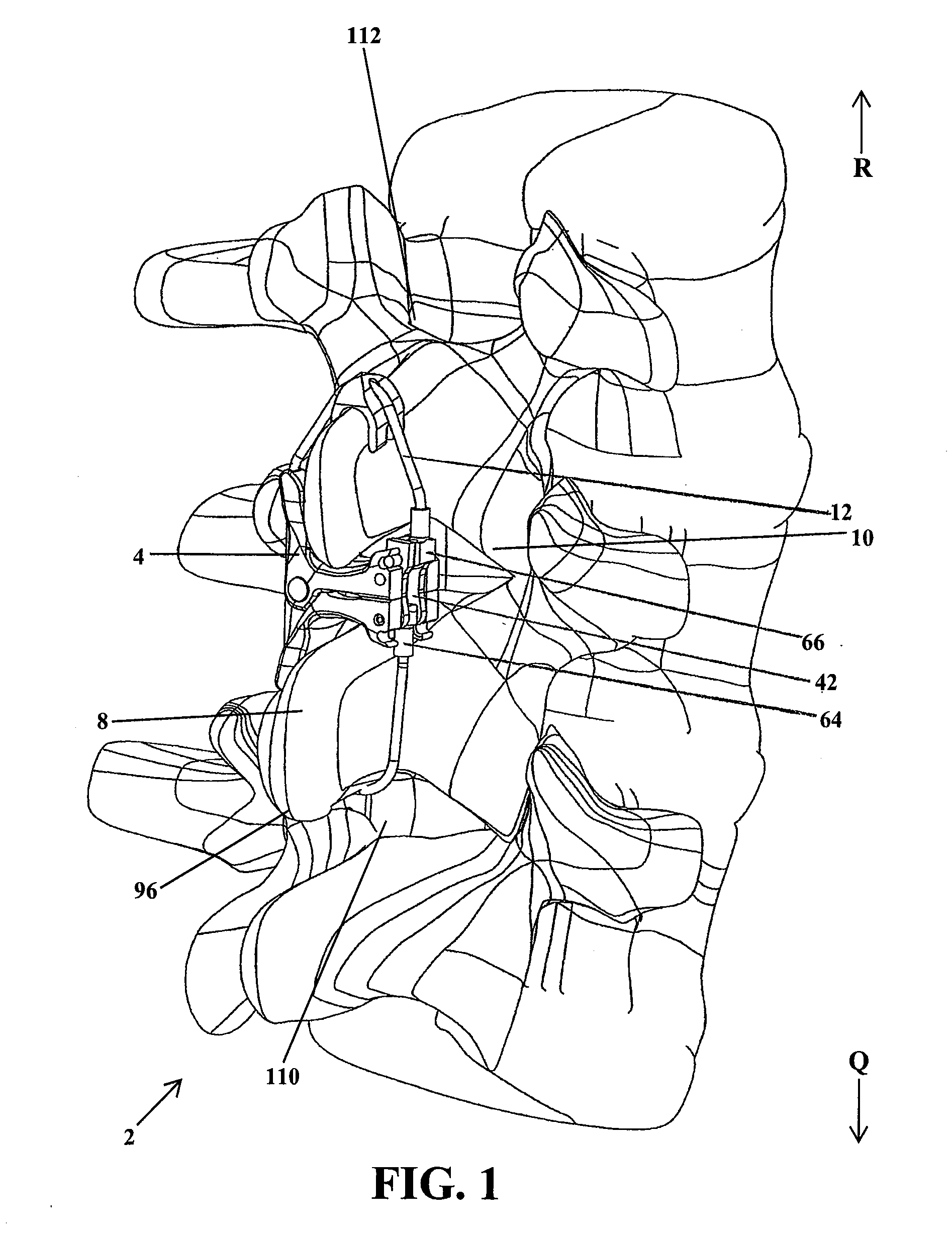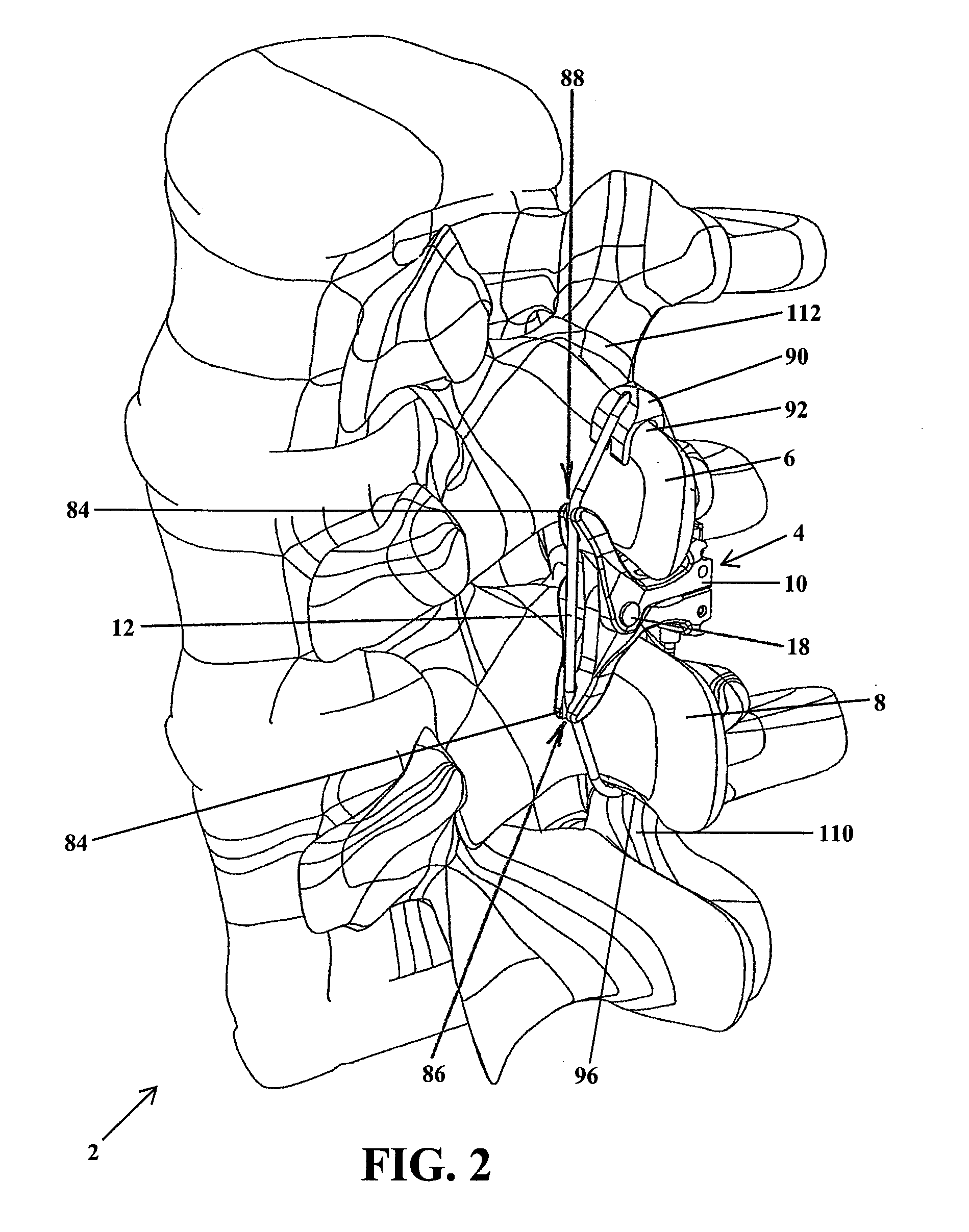Intervertebral Implant Devices and Methods for Insertion Thereof
a technology of intervertebral implants and proximal vertebrae, which is applied in the field of intervertebral implant devices for implantation between adjacent vertebrae, can solve problems such as obstacles in securely engaging the spinous process, and achieve the effect of reducing the distraction distance of the spinous process
- Summary
- Abstract
- Description
- Claims
- Application Information
AI Technical Summary
Benefits of technology
Problems solved by technology
Method used
Image
Examples
Embodiment Construction
[0137]In FIG. 1, an implant apparatus 2 is shown having an interspinous spacing member 4 positioned between adjacent vertebral bodies 6 and 8 and secured or locked in place by a locking mechanism 10. The locking mechanism 10 is configured to secure engagement between the implant spacer 4 and the adjacent vertebral bone portions 6 and 8. As shown in FIG. 1 the locking mechanism 10 includes a flexible member 12 secured to and extending from the implant spacer 4, about the adjacent vertebral bone portions 6 and 8, and secured again to the implant spacer 4.
[0138]As shown in FIGS. 1-32, the interspinous spacing member includes an upper implant engaging member 14 for being positioned adjacent to and engaging an upper vertebral bone portion 6. Further, the spacing member 4 includes a lower implant engaging member 16 for being positioned adjacent to and engaging a lower vertebral bone portion 8. An exemplary interspinous spacing member 4 is disclosed in U.S. patent application Ser. No. 12 / 0...
PUM
 Login to View More
Login to View More Abstract
Description
Claims
Application Information
 Login to View More
Login to View More - R&D
- Intellectual Property
- Life Sciences
- Materials
- Tech Scout
- Unparalleled Data Quality
- Higher Quality Content
- 60% Fewer Hallucinations
Browse by: Latest US Patents, China's latest patents, Technical Efficacy Thesaurus, Application Domain, Technology Topic, Popular Technical Reports.
© 2025 PatSnap. All rights reserved.Legal|Privacy policy|Modern Slavery Act Transparency Statement|Sitemap|About US| Contact US: help@patsnap.com



